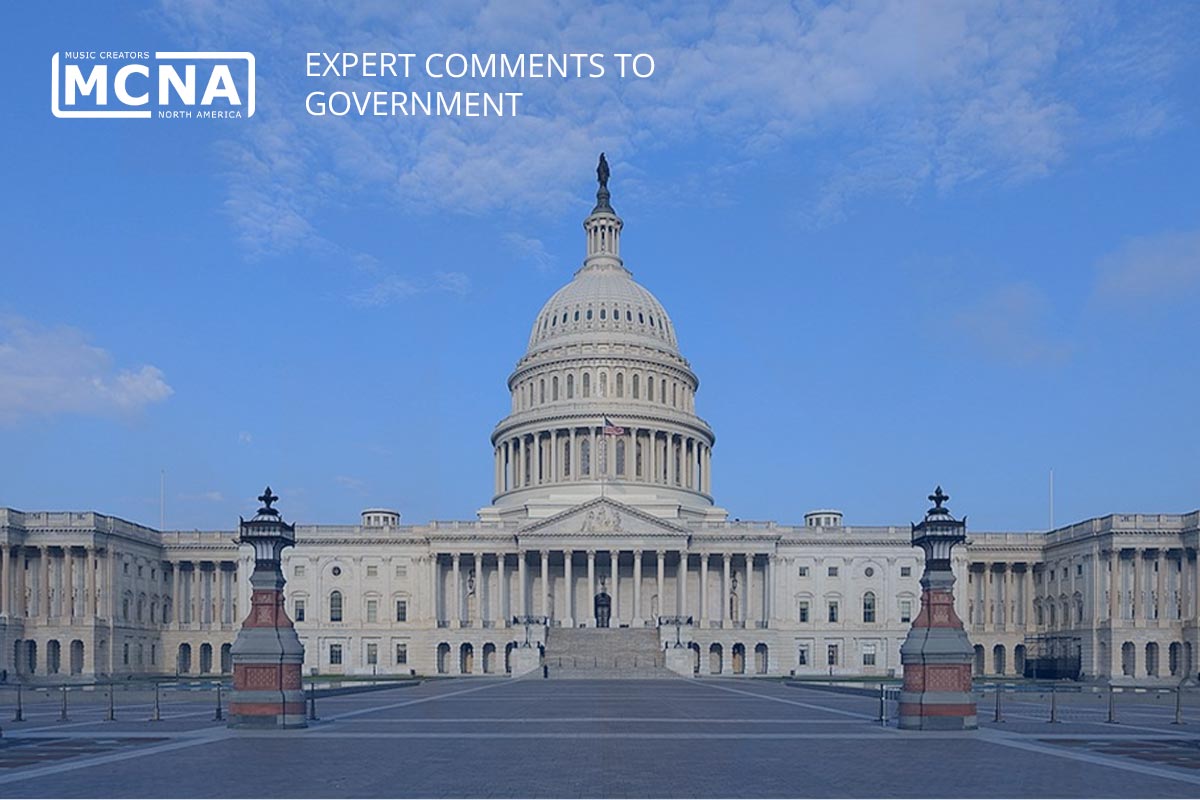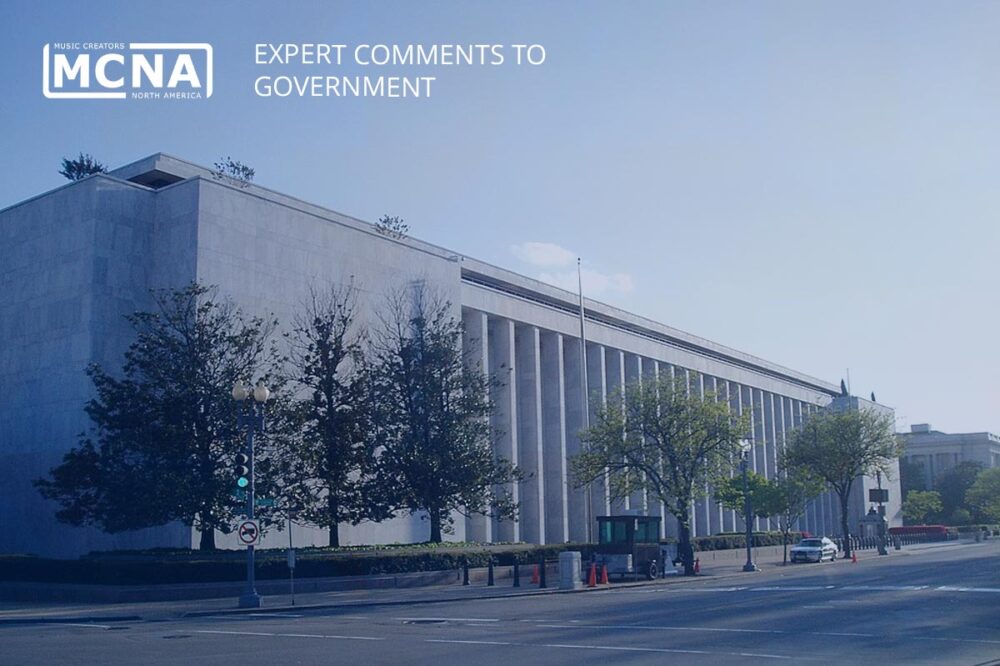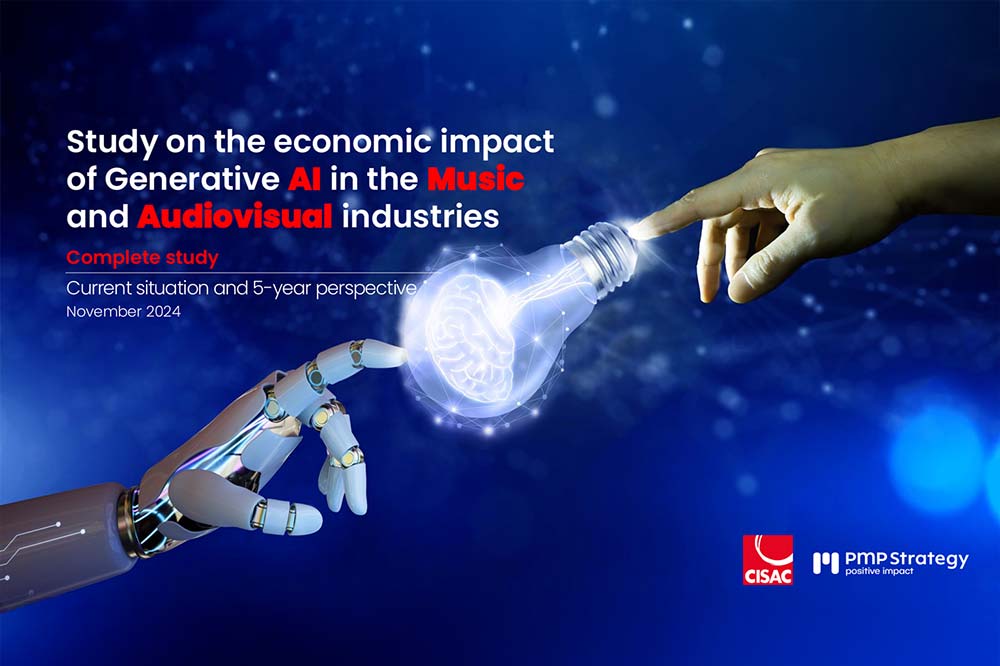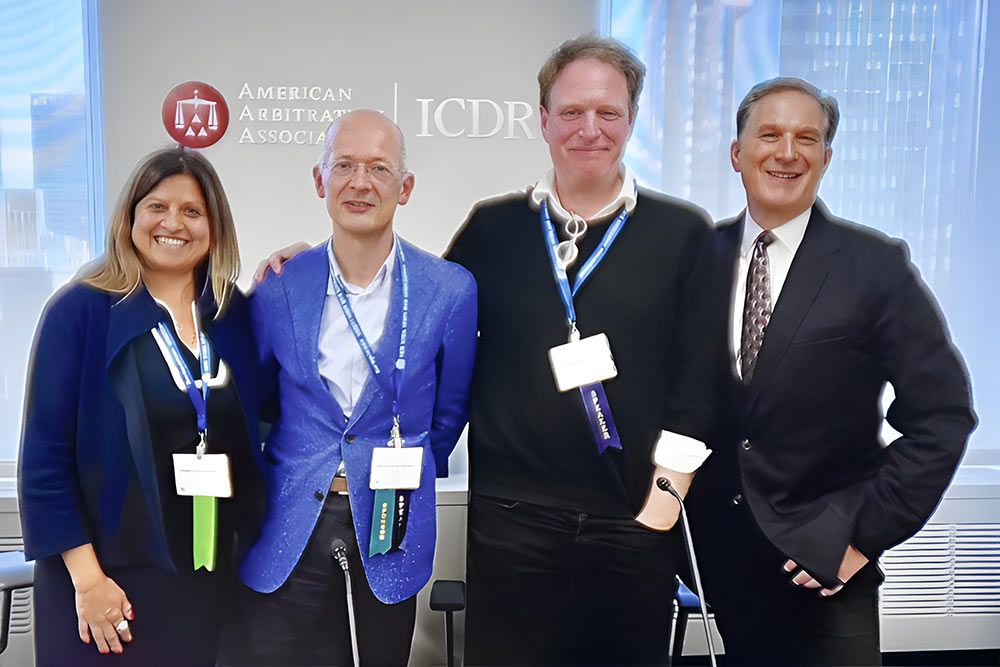Request for Information: National Priorities for Artificial Intelligence, US Office of Science and Technology Policy
Comments of The Songwriters Guild of America, the Society of Composers & Lyricists, and the Music Creators North America Coalition
The Songwriters Guild of America (“SGA”), the Society of Composers & Lyricists (“SCL”), and the Music Creators North America (“MCNA”) coalition (all of which are advocacy organizations for the protection of American music creator rights as described on the final page of this document) applaud and support the comments submitted today by the Copyright Alliance of the United States (“Alliance Comments”) in response to the request for information (“RFI”) published by the Office of Science and Technology Policy (“OSTP”) in the Federal Register on May 26, 2023. That important RFI requests comments to help OSTP update U.S. national priorities and future actions on artificial intelligence (“AI”).
As is our custom, and consistent with our commitment to the principle that the independent American music creator community speaks with its own voice (especially regarding issues likely to exert substantial influence over the cultural and economic future of musical creativity in the United States), we are pleased to submit our own comments (“Independent Music Creator Comments”) setting forth our independent views on specific issues. In short, the points herein are respectfully provided to underline those concerns related to generative AI systems that we believe to be most critical to the interests of songwriters, lyricists and composers. We are available to discuss these matters further and in greater detail at your request and convenience.
Please note that all of the following Independent Music Creator Comments are submitted in response to Question One of the RFI: “What specific measures – such as standards, regulations, investments, and improved trust and safety practices – are needed to ensure that AI systems are designed, developed, and
1. We wish first to emphasize the importance of the statement in the Alliance Comments (supported by Article I Section 8 of the US Constitution) that “[t]he marketplace should continue to properly value and incentivize creativity, and AI policy should not interfere with the right of copyright owners to license, or choose not to license, their works for AI uses.” (Alliance Comments at 2).
Moreover, we believe it is equally important to make clear our perspective that the full scope of current and future generative AI uses, inputs and applications –whether now known or hereafter created–are intended to be included within this principle. As such, the exact nature and scope of many of those current and prospective uses of our musical works remain unforeseen, or not yet fully disclosed or understood. That reality may require consideration of the creation of additional, sui generis rights and protections for creators and copyright owners that of necessity must go beyond current copyright laws and concepts. Further discussion of this issue is to us a matter of great importance and urgency prior to the widespread, unlicensed ingestion and incorporation of our works into AI systems.
2. We likewise underline the crucial assertion in the Alliance Comments that “[a]dequate transparency regarding ingestion of copyrighted works also goes a long way in helping to ensure that copyright owners’ rights are respected. …. In particular…it is vital that AI developers maintain records of which copyrighted works are being ingested and how those works are being used, and make those records publicly accessible as appropriate….” (Copyright Alliance Comments at 3). While the Alliance Comments omit from such suggested disclosure obligations those AI developers “that are also the copyright owners of the works being ingested by the AI system,” we believe it is essential to the integrity of any system designed to ensure fairness through transparency that information concerning all ingestive uses of copyrighted musical works be mandated for disclosure. Going this further step will serve not only the interests of songwriters, composers and lyricists whose works are being incorporated into any and all AI systems, but will also accrue to the benefit of a public that maintains the right to know the sources of the AI-generated entertainment and information it is consuming.
3. One of the most compelling points made in the Alliance Comments pertains to concerns over the frequent attempts of the technology sector to expand the exception of “fair use” to the point of swallowing whole the general rules of copyright protection. As the Alliance Comments state, “[s]ome AI developers assert that AI innovation will be impeded if the ingestion process is not deemed to be categorically fair use. This false narrative purposely omits the fact that in many cases licenses are available for ingestion. As history has shown, creators and copyright owners are usually willing to license their works when the parties can agree on appropriate terms and compensation; that is, of course, how creators typically earn a living. Copyrighted works provide immense value to AI developers, and they can and should
Again, our groups wish to emphasize our concurrence, and would in fact go a step further by requesting that the Biden-Harris Administration (i) make public note that it regards ingestion of copyrighted musical works by AI systems without copyright owner permission as being presumptively infringing, and (ii) urge Congress, the US Copyright Office and the courts to act in ways consistent with that conclusion (including a request for consideration by Congress of any necessary clarifications to the US Copyright Act regarding AI ingestion and a presumption against a finding of fair use in such instances, or if appropriate, creation of a sui generis right that guarantees to music creators and copyright owners the right to license or not to license ingestion of works into generative AI systems under any circumstances).
4. Another crucial point made in the Alliance Comments that we wish to highlight is the obvious conclusion that “[i]n some cases, AI-generated outputs may also infringe works ingested by the AI system.” (Alliance Comments at 3). We respectfully suggest that Administration policy should be fully consistent with the bedrock principle that permission to allow AI systems to ingest copyrighted musical works for the purpose of generating algorithmically machined content in no way exempts those systems from liability for copyright infringement in the event that such generative output includes works substantially similar to one or more of the works ingested by the system. Moreover, even in rare instances (if any) in which unauthorized ingestion of a copyrighted musical work is judged to be non-infringing, such finding should still not serve as a shield against copyright infringement liability for the owner or controller of the AI system concerning substantially similar generative output.
5. We similarly wish to focus attention on the significance of the conclusion in the Alliance Comments that “[questions about infringement, copyrightability, and liability related to the ingestion of copyrighted works and the output of works created using AI are topics that the Copyright Office has already begun exploring … as its study on copyright and AI progresses. To the extent that copyright issues arise in the course of the Biden-Harris Administration’s development of a National AI Strategy, we trust that the agencies involved will defer to the Copyright Office and USPTO’s guidance on these issues.” (Alliance Comments 5-6).
Further in that regard, we believe we would be remiss in not specifically conveying our strong support for a necessary increase in funding for the Copyright Office. The heavy reliance on the Office’s expertise and enterprise that will be necessary to ensure the success of a variety of new and anticipated legislative mandates to help protect the rights of music creators and other authors and copyright owners –including the provision of knowledgeable insight regarding the myriad, economically crucial issues related to generative AI–requires that the Office be given the proper resources to carry out its responsibilities. From our perspective, the Office is currently severely under-staffed and under-funded, and we ask the Biden-Harris Administration to study this issue carefully on an immediate basis and take
6. Finally, while we wholeheartedly concur with the Alliance Comments concerning the need for careful and deliberate consideration prior to formulation and implementation of US Government policies related to generative AI, we also want to make clear our strong belief that addressing the matters raised herein represents an urgent financial, cultural and trade priority requiring the immediate attention of the White House, Congress, and other department of government. We are especially firm in our belief that the need to discuss a collective licensing option for generative AI to serve the independent music creator and copyright owner communities is of paramount importance.
Specifically, maintaining competition in the marketplace is predicated on the ability of all participants in the value chain to have an opportunity to engage in commerce on a level playing field (or as close to level as consolidation and vertical integration within the music industry will effectively permit). Independent music creators not affiliated with the three major, global music conglomerates (which together control a vast majority of the world’s music copyrights) must somehow be afforded the practical ability to compete fairly in the AI licensing space. Consideration of an opt-in system for voluntary, collective negotiation and blanket licensing by the independent music sector should therefore be the subject of immediate consideration by the Biden-Harris Administration and Congress as perhaps the best way to ensure that our independent musical works are neither shut out of the AI licensing market –nor infringed with impunity–due to the lack of a viable, voluntary system of licensing, collective rate negotiation, and administration that the major conglomerates already individually possess.1
In closing, we thank the OSTP and the Biden-Harris Administration for the opportunity to present our comments for consideration, and look forward to responding to any further requests for information or clarification.
Respectfully submitted,
Rick Carnes
President, Songwriters Guild of America
Officer, Music Creators North America
Ashley Irwin
President, Society of Composers & Lyricists
Co-Chair, Music Creators North America
Eddie Schwartz
President, Music Creators North America
NOTES:
(1) The world’s largest music conglomerate already controls more musical composition copyrights than the entire universe of independent songs, with the combined market shares of the next two largest surpassing the holdings of both the largest and the combined independents. Source here.
(Image credit: Martin Falbisoner, CC BY-SA 3.0, via Wikimedia Commons)
